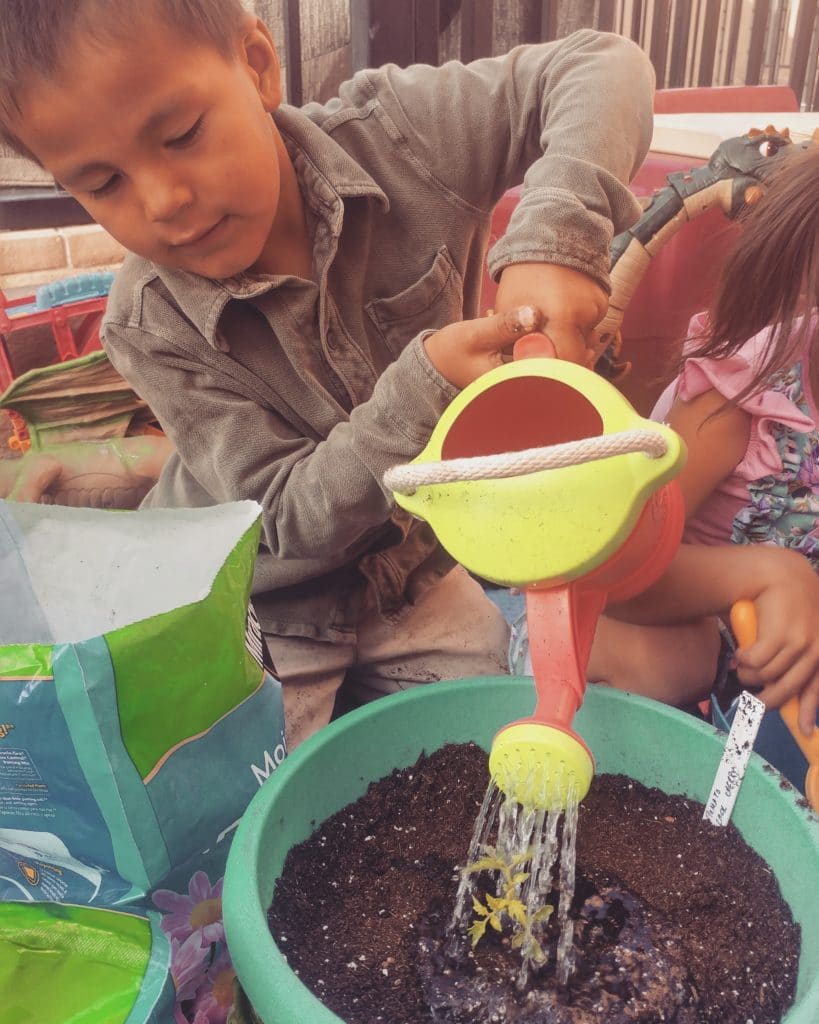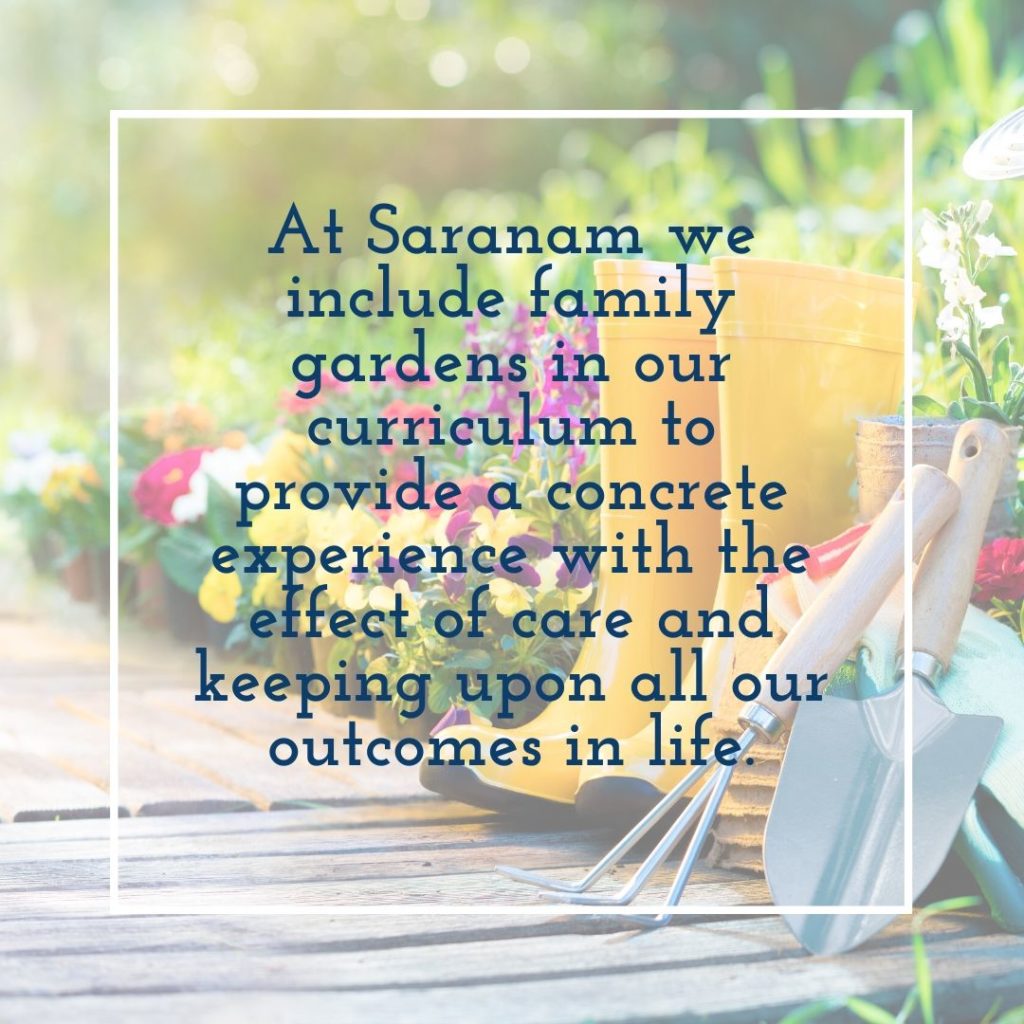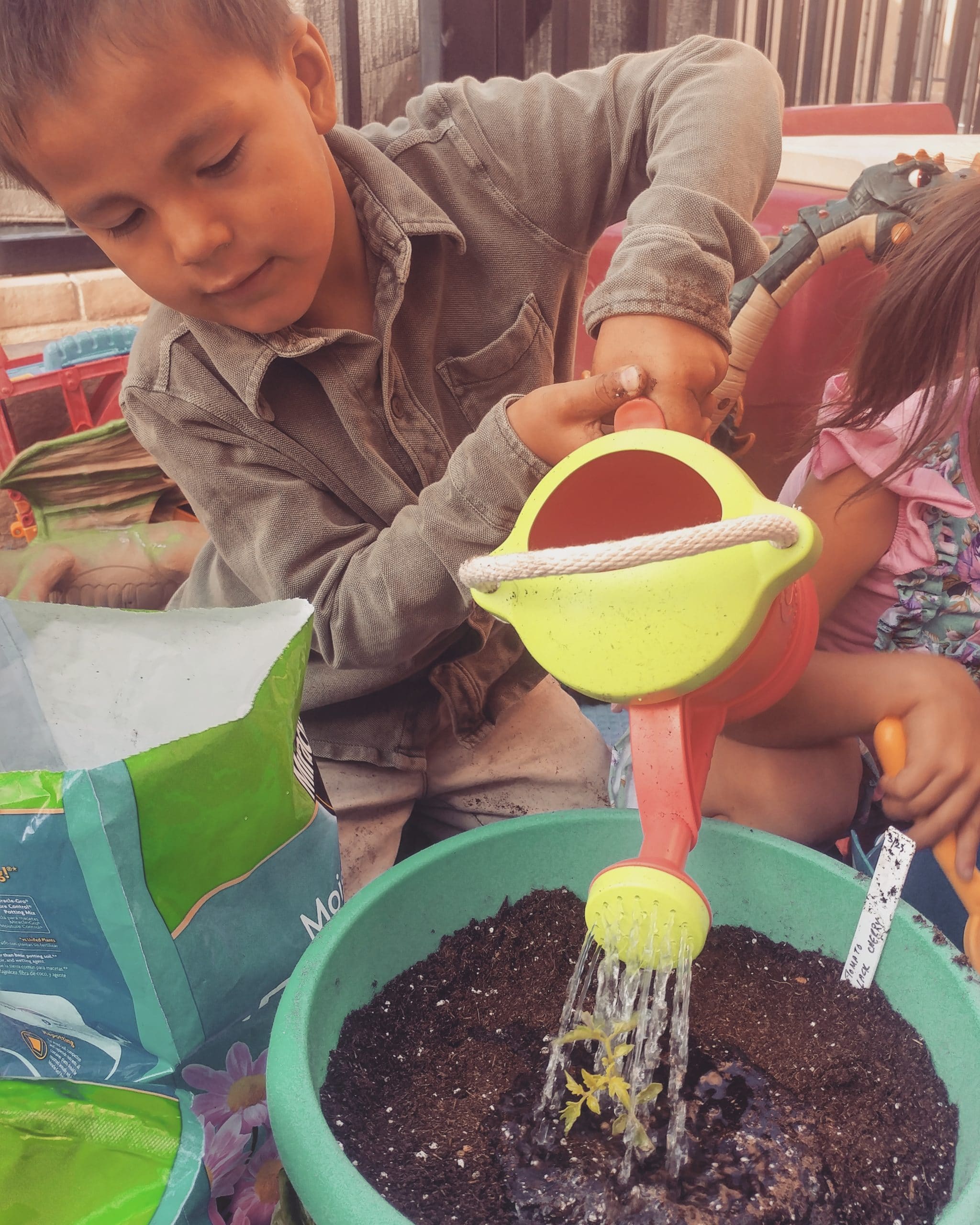By: Catherine Bergen
Spring has sprung! The sun is shining, the birds are singing, and plants are blossoming. At Saranam we have the best curriculum that uses gardening to teach families important skills. We asked our phenomenal instructor, Catherine Bergen, to tell us about why this is such an important part of our work.

Gardening is an act of_______________
a. love and nurturing
b. personal expression
c. environmental cooperation
d. cooperative family enterprise
Which option did you choose? There’s no wrong answer! One beautiful thing about gardening is that each gardener’s experience is personal, unique and multi-faceted. Our not-so-secret wish is that every person might have an opportunity to discover the joy of gardening and unearth what kind of act it can be for her or him. This is just one of several hoped-for outcomes of our Saranam family gardening project. There is so much to learn from it!
The list of reasons why we garden at Saranam is dizzying. To name just a few:
• Through gardening, Saranam families learn they have an influence on their environment;
• Our children learn where food comes from;
• The family gardens provide a healthy, cooperative family project that promotes “togetherness;”
• The gardens provide a gathering place for the community;
• Vegetable gardening provides a jumping-off point for discussions on nutrition, meal-planning, and sharing of favorite recipes;
• Our children are more likely to eat vegetables they have helped choose and grow; and
• Gardening is a proven natural anti-depressant.

In addition, we view gardening as a metaphor for life. In class, we address the value of weed control in our gardens as well as figurative weed control in our lives the concept of reaping what we sow, the importance of starting our journey with a plan or vision, and many other such metaphors.
In other words, at Saranam we include family gardens in our curriculum to provide a concrete experience with the effect of care and keeping upon all our outcomes in life.
Gardening at Saranam provides opportunities for introspection, experimentation, learning and growth. Many of our parents have fond memories of gardening with a loved one in their youth, and others have no experience at all, but all participate in gardening at this stage in their lives.

Our hope is that as they look back at their Saranam experience, they may do so with fond memories of the gardens, and as they navigate the intricacies of their future lives and relationships, they’ll carry with them some of the lessons learned while nurturing the plants they chose to grow in their family gardens at Saranam. And maybe. . . just maybe. . . when someone asks them what kind of act gardening is, they’ll have a quick, positive, heart-felt reply!
Catherine Bergen

